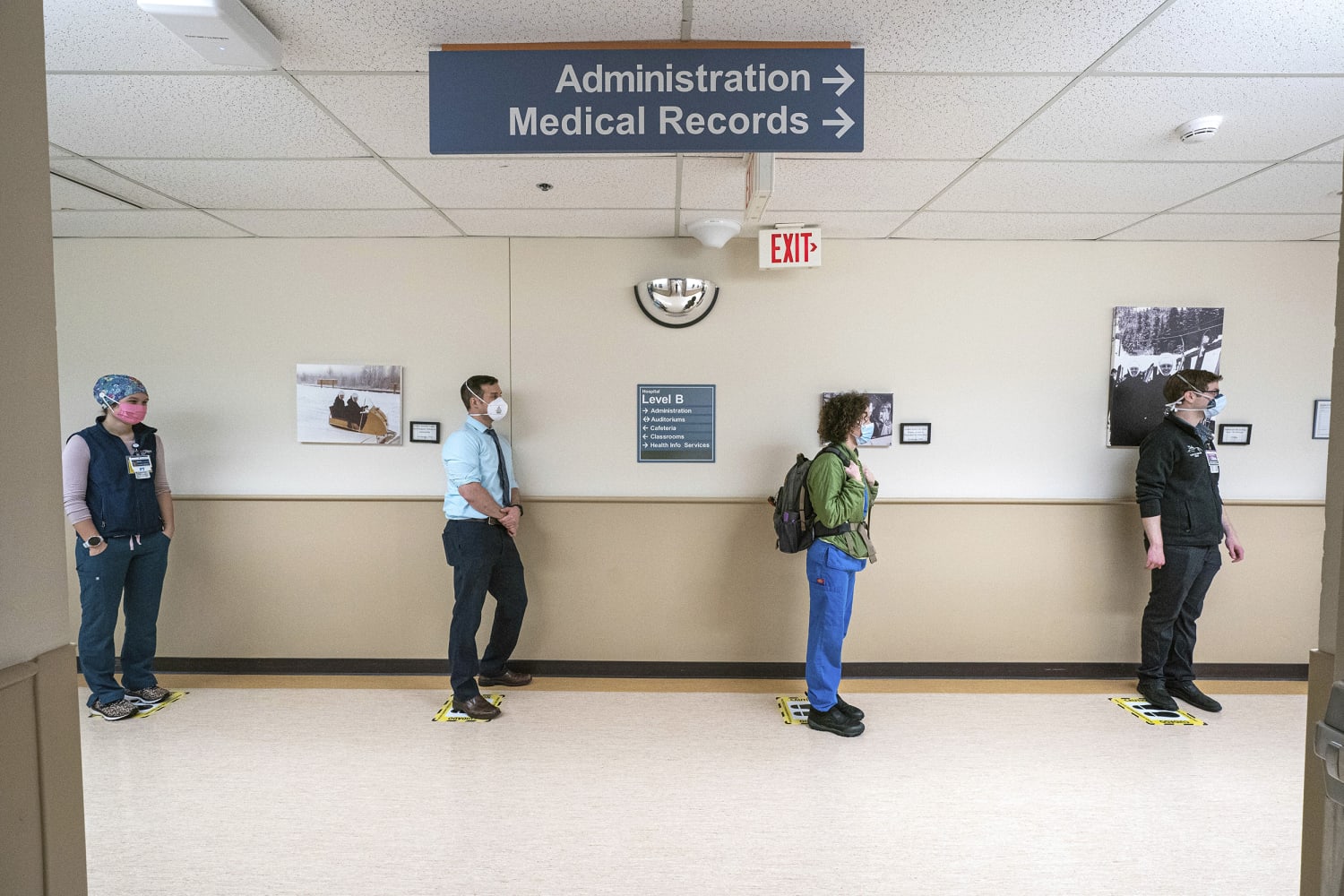
With the Covid-19 vaccination rollout accelerating across the United States, public health experts say the biggest obstacle to reaching herd immunity is no longer the anti-vaxxers — it’s the people who are still on the fence about getting a shot.
Nearly a third of the people who took part in a recent Kaiser Family Foundation survey fell into the “wait and see” category, and that’s enough to imperil the chances of reaching the goal of vaccinating 70 percent of the population to stunt the pandemic and allow American life to get back to normal, they said.
“We’re in a race now, if you will,” Dr. Marti Sharkey, who is the health officer in the city of Fayetteville, Arkansas, told NBC News. “It’s vaccines versus variants. The virus is constantly mutating, so we need to reach herd immunity as quickly as possible, and the way to do that is to vaccinate as quickly as possible. The vaccines are going to be more effective the faster we get them into arms.”
Summer Johnson McGee, who is dean of the University of New Haven’s School of Health Sciences, agreed.
“Every time there is a new Covid-19 infection, we are giving the virus a chance to mutate and develop more transmissible or deadly variants,” she said. “The sooner we reach herd immunity and stop chains of transmission, the less impact these variants are likely to have because it will be so much harder for Covid-19 to find an unvaccinated individual.”
The problem, however, is that the fence-sitters have built up their own immunity against that kind of messaging, the experts said. And the potentially dire consequences of not breaking through to them wound up being a big part of the discussion this week at a meeting of the Fayetteville Board of Health.
“My fear is that we plateau at less than 50 percent vaccination rate in the community and that would make it a difficult summer — not what it could be — which is why messaging is so critically important,” said Dr. Hershey Garner, a local physician who treats cancer patients.
As of Thursday, Arkansas ranked 48th out of the 50 states in terms of vaccination efficiency after having administered only about 68 percent of the 1.2 million doses that have been delivered to the state, according to Becker’s Hospital Review. And just 9.5 percent of the 3 million Arkansas residents are fully vaccinated.
Sharkey said social media has been both a blessing and a curse for the vaccination rollout in that it’s been a top source of vitally needed information along with being a major source of disinformation.
“People are nervous and are getting conflicting information, especially over social media, about the safety of the Covid-19 vaccines,” she said.
So Sharkey is a big proponent of good old-fashioned word of mouth.
“The most effective way to get them off the fence, it seems to me, is by having friends telling friends about the vaccine,” she said. “They’re more likely to believe a friend, a person they trust, who tells them they suffered no ill effects and encourages them to be vaccinated.”
In Arkansas, most of the vaccine distribution is being done through pharmacies, and Sharkey said that needs to change as well.
“I believe they need to start distributing them through doctors’ offices as well,” she said. “My mother wants to get a vaccine from somebody she knows and there are a lot of people, especially older people, who feel the same way.”
Seeing trusted public figures get vaccinated also alleviates concerns, McGee said.
“We need every kind of influencer to be using their audience and reputation to promote Covid-19 vaccination,” she said. “Social media influencers, celebrities, athletes, religious and community leaders—absolutely everyone should be talking about how they are vaccinated or why they will vaccinate when they are eligible. We need people going door to door like census takers, answering questions about the vaccine and dispelling these vaccine myths.”
Recently, four former U.S. presidents – including Arkansas native son Bill Clinton – were featured in two national ad campaigns aimed at drumming up support for Covid-19 vaccinations. But former President Donald Trump did not take part in the campaign and also refused to be photographed when he got his shot before leaving office in January.
Sharkey said that was a shame.
“President Trump not receiving the vaccine publicly probably hurt states such as mine that are more conservative, but we have a Republican governor who has been very pro-vaccine and who has been very engaged in the process,” she said, referring to Gov. Asa Hutchinson.
So who are the fence-sitters? Fifty-one percent were white and 29 percent were under the age of 30, the Kaiser Family Foundation researchers found.
Just 15 percent were 65 and older. And while much has been written about the painful historical reasons for Blacks being suspicious of vaccinations, they accounted for just 16 percent of the people in the survey, while 19 percent identified as Hispanic.
The fence-sitters were also “a politically diverse group” with 42 percent identifying as Democrats or Democratic-leaning independents, 36 percent identifying at Republican or Republican-leaning independents, and 14 percent who claim to be independents “who don’t lean either way,” according to the researchers.
“The vaccine hesitancy we are seeing isn’t just about Covid vaccines,” McGee said. “It is a general reflection of Americans’ lack of trust in science, the pharmaceutical industry, and large health care institutions. We need a full court press on science and vaccine education right now to prevent more aggressive Covid-19 variants from developing and taking hold.”
Source: | This article originally belongs to Nbcnews.com










